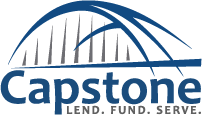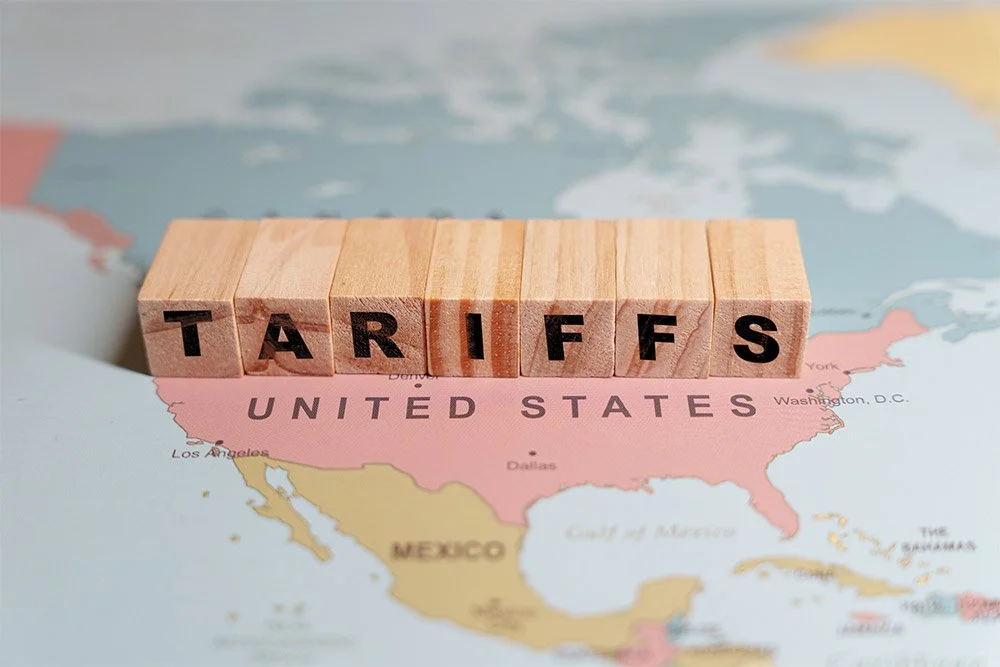How Could Tariffs Affect Real Estate Investors & Builders?
For real estate investors and builders, tariffs can reshape construction costs, borrowing power, interest rates, and property values. However, real estate still reigns as a powerful asset class in 2025.
What Are Tariffs and Why Do They Matter?
Tariffs are taxes placed on imported goods. While their direct purpose is to encourage domestic production and reduce dependency on foreign imports, they also drive up the cost of materials and products that many U.S. industries depend on—including tariff impact on construction and real estate development.
A 25% tariff on imported steel or lumber, for instance, doesn’t just affect steelworkers or logging companies—it directly increases building costs for developers and real estate entrepreneurs. These rising costs ultimately influence how much capital is needed to complete a project, and how lenders assess the risk of funding it.
Tariff Impacts on Construction Costs
One of the most immediate and visible impacts of tariffs is an increase in construction costs. For example:
In 2018, the Trump administration implemented a 20% tariff on Canadian softwood lumber. According to the National Association of Home Builders (NAHB), this added approximately $9,000 to the price of a typical single-family home.
Tariffs on imported steel and aluminum caused material prices to spike for structural framing, HVAC systems, and roofing.
For real estate investors and builders, this means that project budgets swell, potentially reducing return on investment. It may also lead to fewer new developments, particularly in lower-margin projects or markets with already-tight profit conditions.
The Impact on Financing and Borrowing Power
As construction prices rise, so does the amount of capital required to bring a project to completion. For business owners seeking to fund a purchase or renovation with financing, this can create complications in several ways:
Loan-to-Cost (LTC) and Loan-to-Value (LTV) Ratios Shift
Lenders use LTC and LTV ratios to assess risk. When tariffs inflate material costs, total project expenses rise, which could exceed an investor’s budget or shrink equity buffers. This can make it harder to qualify for the same level of financing, even with solid credit and a viable project.
Appraisal Values May Not Keep Up
Tariff-related price increases don’t always translate directly to higher appraised values. A project that costs more to build doesn’t automatically appraise higher, especially if comparable properties in the area haven’t appreciated similarly. This mismatch may limit the size of the loan a borrower can secure.
Longer Approval Timelines
What comes with volatility in the market? Tariff impacts on construction and material costs. and uncertain trade policy can cause lenders to move cautiously. Underwriters may require more documentation or revise approval criteria frequently in response to market fluctuations.
Interest Rates and Inflation Pressures
Tariffs can also contribute to inflation by increasing the prices of consumer and industrial goods. As inflation rises, the Federal Reserve may raise interest rates to cool the economy.
According to the Brookings Institution, tariffs introduced between 2018 and 2019 raised the effective consumer tax burden and created upward pressure on inflation indicators. In turn, this prompted concerns about tighter monetary policy.
For real estate investors, higher interest rates translate directly to:
More expensive loans
Reduced cash flow from income properties
Decreased affordability for potential buyers, which can dampen demand in resale markets
These effects can slow the real estate cycle and complicate financing strategies for both short-term flips and long-term holds.
Real Estate Prices and Market Dynamics
Over time, tariffs impact real estate market fundamentals. Here's how:
Supply-side constraints: When new construction becomes too costly, housing supply tightens. This can drive up home prices - especially in high-demand markets.
Demand-side reduction: Simultaneously, higher prices and interest rates can reduce buyer demand, leading to market stagnation or correction in certain areas.
Regional disparities: Markets that rely heavily on imported materials or global trade (e.g., coastal cities, manufacturing hubs) may feel the impact of tariffs more acutely than others.
Still, the real estate market has proven to be remarkably resilient. As Moody's Analytics economist Mark Zandi noted in a 2019 CNBC interview, “Tariffs are a headwind, not a hurricane.” So while there may be tariff effects on real estate, for savvy investors and builders, there are still opportunities in adaptive strategy and smart financing.
Long-Term Outlook: Real Estate Endures
Despite the turbulence tariffs may cause, real estate remains one of the most durable asset classes across economic cycles. Unlike equities or crypto, physical property retains intrinsic value and provides a hedge against inflation over time.
While tariffs may temporarily raise costs, like materials and overall construction, and add complexity to financing, they rarely upend the long-term fundamentals of real estate investment. Instead, they challenge borrowers and builders to adapt—whether by sourcing alternative materials, streamlining project timelines, or working with lenders who understand the nuances of construction and renovation financing.
Navigate Economic Challenges with Capstone Capital Partners
Tariffs can impact real estate projects—but they don’t have to derail them. The key is working with a lender who understands how global economic policy translates into local investment impact.
At Capstone Capital Partners, we specialize in helping real estate entrepreneurs navigate uncertainty with flexible funding solutions tailored to the real world. Whether you’re renovating a multi-family property or building from the ground up, our team can help you act decisively - even when market conditions are complex.
Ready to explore your lending options with Capstone Capital’s expert support to keep your investment goals on track? Tell us a little bit about yourself and we’ll get in touch with you!



